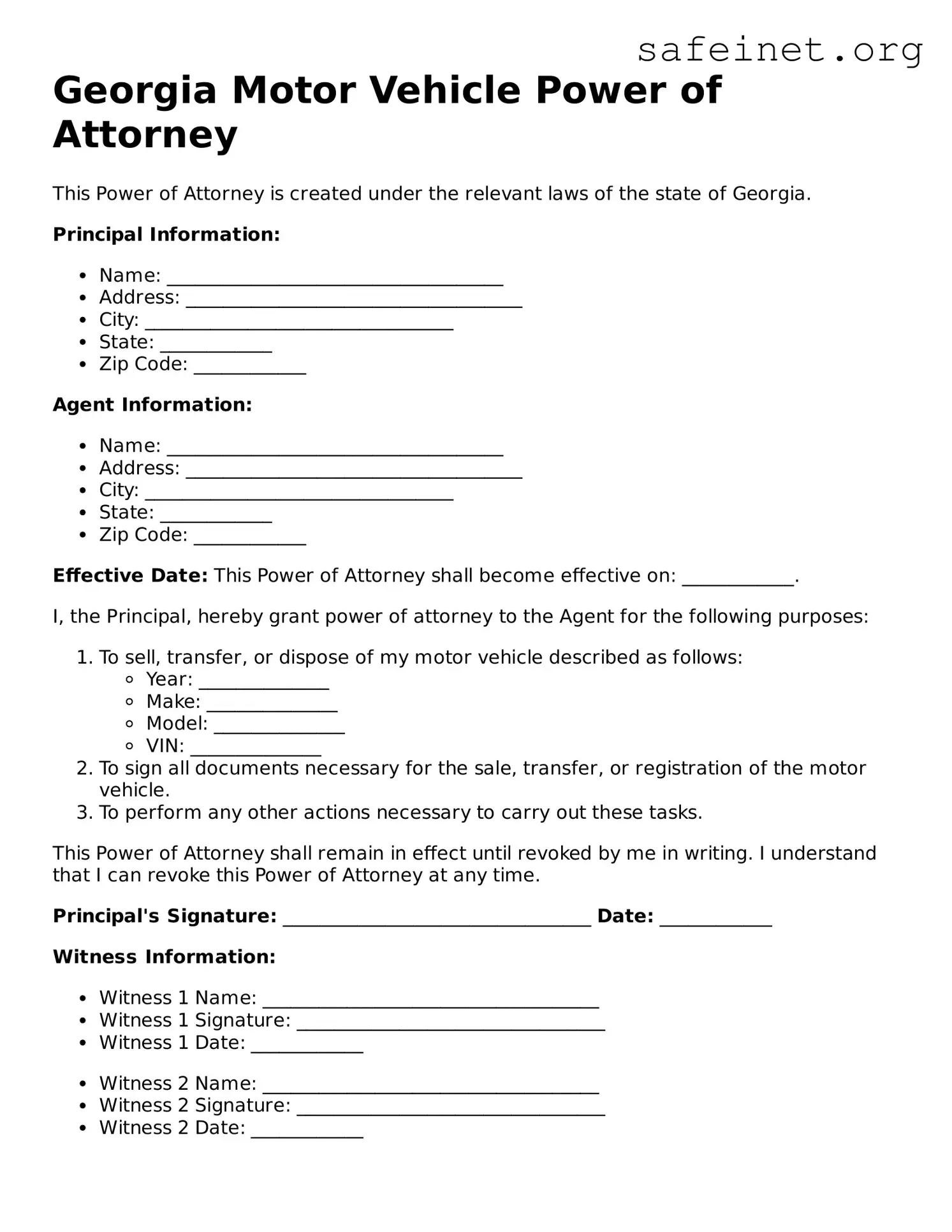What is a Motor Vehicle Power of Attorney in Georgia?
A Motor Vehicle Power of Attorney (POA) is a legal document that allows an individual to authorize someone else to act on their behalf regarding specific matters related to motor vehicles. This includes tasks like registering a vehicle, transferring ownership, or filing necessary documentation with the Department of Motor Vehicles (DMV).
Who can be appointed as an agent under the Power of Attorney?
An individual can appoint anyone they trust as their agent, provided that the agent is at least 18 years old and competent. Common choices include family members, friends, or a legal representative. It is crucial that the appointed agent understands their responsibilities and the extent of the authority granted.
How does one create a Motor Vehicle Power of Attorney in Georgia?
To create a Motor Vehicle Power of Attorney in Georgia, fill out the designated form, ensuring all required information is accurately provided. The document must be signed by the person granting the power (the principal) and may need to be notarized to enhance its validity. State-specific forms can typically be obtained from the DMV or an online legal resource.
Is a notarization required for the Motor Vehicle Power of Attorney?
While notarization is not always mandatory, it is highly recommended. A notarized document adds a layer of legitimacy and can help prevent disputes regarding the authenticity of the signature or the intentions of the parties involved.
What powers can be granted through this form?
The Motor Vehicle Power of Attorney can grant various powers including the ability to sign documents for the sale or purchase of a vehicle, register or transfer ownership, and handle any other vehicle-related transactions. Clearly outlining the powers granted is essential to avoid misunderstandings.
Can I revoke a Power of Attorney once it is created?
Yes, you can revoke a Power of Attorney at any time as long as you are mentally competent. The revocation should be made in writing and communicated to the agent and any relevant authorities, such as the DMV. Keeping a copy of the revocation for your records is advisable.
Do I need a Motor Vehicle Power of Attorney if I am selling my vehicle?
If you cannot be present to complete the sale or transfer of your vehicle, a Motor Vehicle Power of Attorney may be necessary. The designated agent can handle the transaction on your behalf, ensuring that all paperwork is completed effectively and timely.
How long does the Power of Attorney remain in effect?
The duration of the Power of Attorney depends on the specific terms outlined within the document. It can remain valid until a specified date or until revoked by the principal. Be sure to check the details to understand when the authority officially ends.
What happens if the agent misuses their authority?
If an agent misuses their authority or acts contrary to the principal's interests, the principal may take legal action. This may include seeking a revocation of the Power of Attorney and possibly pursuing compensation for any damages incurred as a result of the misuse.
